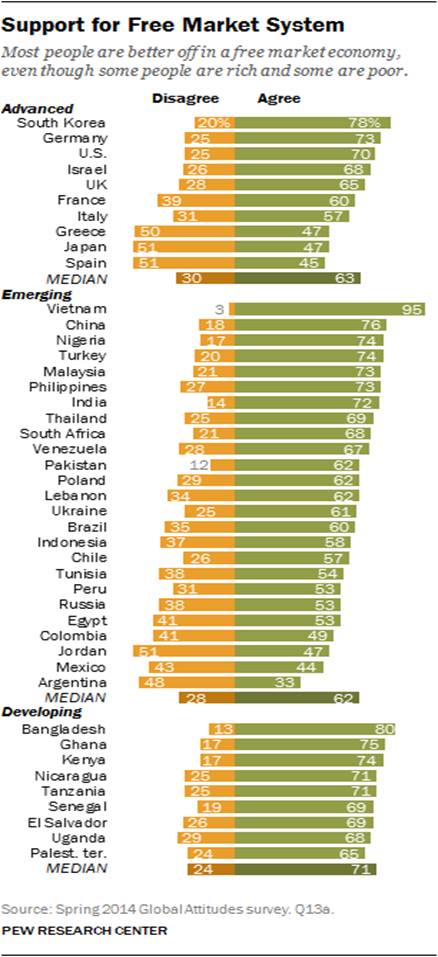"Uma das promessas do euro, em particular para os países mais fracos, era a de dar maiores garantias e reforçar a confiança, promovendo maior estabilidade e prosperidade. Hoje, demasiados países do euro estão confrontados com o contrário. Isto é, com serem obrigados a fazerem um esforço maior para conseguirem financiar-se e manter a confiança, exactamente por estarem no euro. Uma moeda comum limita a margem de manobra. Mas uma moeda comum devia reforçar a confiança, sendo especialmente benéfica para os países mais fracos. A gestão que as instituições europeias fizeram da crise, enterrou essa promessa. A pertença ao euro deixou de ser um valor, para passar a ser um fardo, que contribuiu para afundar de forma mais forte os países mais vulneráveis. A pertença ao euro deixou de ser uma vantagem, para ser apenas algo que devemos manter porque os custos de saída seriam muito elevados."Fico sempre intrigado com a qualidade dos alunos formatados por estes professores:
Para estes formatadores bom é haver inflação, é destruir poder de compra na ilusão monetária, Já viver dentro dos limites da sustentabilidade da riqueza criada é que não dá.
Trecho retirado de "A Grécia, Portugal e as promessas europeias"























